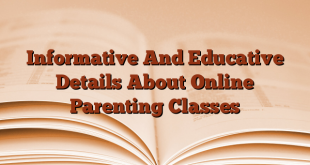The idea of online education was laughed at not too many years ago. But these days, both educational institutions and prospective students are taking online education seriously.
The first universities to offer accredited online degrees appeared as early as the 1990s. More often than not, these pioneering schools were looked down upon by the “academic elite” and viewed as somehow “shady” or disreputable. But a lot has certainly changed since then, and these days even the most reputable Ivy League universities offer online courses and sometimes a full online curriculum for distance learning.
If you were wondering how online classes work or if it would be a good alternative for you, read on to get a feel for the online learning experience and what it means to be a “virtual student”.
Obviously, the biggest difference between online education and attending an actual university is that it doesn’t require studying in a specific place. This means much of the social aspect of going to college is removed from the online educational experience. But depending on your point of view, this could actually be a very good thing. It makes it possible to bypass much of the peer pressure and “popularity contests” that have inundated many college cultures.
If you’re an older student – and by older I mean over 24 – you’re likely to find much of the petty scramble for popularity and status a real turnoff anyway. Because of this, online education can be a great option for repeat students or those who are a little more mature.
One of the biggest questions prospective students have about online education is how the virtual classroom actually works. While there are similarities between the virtual classrooms used in online education and the conventional classrooms at a traditional university, there are also notable differences.
For example, when you visit a physical campus, you enter the classroom and attend a specific course at a specific time, which will last between one and three hours on average. The course instructor will likely be lecturing for most of this time, but there may be some student involvement as well. At the end of the lesson, the teacher can assign homework or inform students about upcoming tests.
But in a virtual classroom, the structure is much more open and lesson planning much more flexible. For example, you can usually log into your virtual course at any time, where you can listen to, read, and watch videos of the course material. You can usually take as much time as you like to go through the material and complete the tasks given. While your instructor is usually available to answer questions via real-time online chat, email, or instant messaging, they will not monitor your progress or engage with your work habits.
This means that with online education, the student takes far greater responsibility for their own learning. No one will babysit you or make sure you do the work required; It is simply presented to you and you are expected to be responsible for completing the tasks and verifying the information.
That kind of freedom and flexibility suits many people perfectly, but others — especially younger students — may crave the structure of traditional campus learning. If you value your time and are motivated enough to take responsibility for yourself, online education could be a perfect fit for you.
Thanks to Craig Thornburrow
 eLearning Weblog The Distance Learning, Online Degree & Education Hub
eLearning Weblog The Distance Learning, Online Degree & Education Hub



